Iran Can Access Its Frozen Funds In 30-45 Days
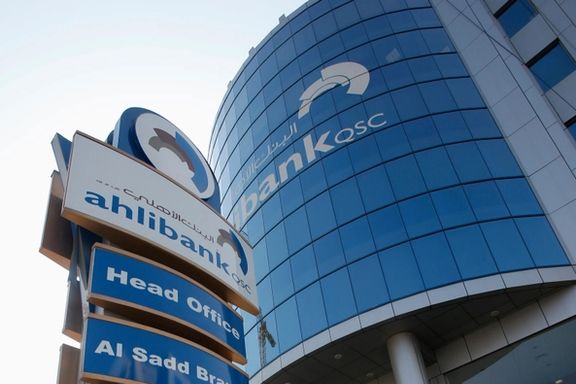
The transfer of Iran's funds from South Korea to Qatar as part of a US hostage release deal is likely to take 30 to 45 days, American sources told CNN.

The transfer of Iran's funds from South Korea to Qatar as part of a US hostage release deal is likely to take 30 to 45 days, American sources told CNN.
According to CNN sources, Iran’s $6 billion, earned from oil sales before the US reimposed sanctions on Iran in 2018, would go through Switzerland before getting to Qatar.
The funds, in a restricted account in South Korea, will be put in restricted accounts in Qatar, from where they will be readily available for “non-sanctionable trade” of goods like food and medicine.
Haaretz said the path of transferring this money is complex and convoluted, and required separate negotiations that took place with the participation of Oman, Britain and Switzerland, in addition to Qatar. It added that the six billion dollars have already moved from South Korea to a Swiss bank, deposited into a special account.
The US Treasury will be heavily involved, as the transfer of funds is expected to take weeks to complete particularly because the US is not lifting any sanctions in order to facilitate the transfer, CNN sources said. Haaretz, however, said the US Treasury is now searching for an option to expedite the process.
White House spokesperson John Kirby said that “there will be a rigorous process of due diligence and standards applied with input from the US Treasury Department."
However, it is not clear how the US will control the disbursements of the funds, which will be kept in six Iranian bank accounts in Qatar in euros, as any transfer of funds will be outside US control of dollar-denominated transactions.
Earlier, Iran's foreign ministry and government media insisted that the unfrozen funds would be under Tehran's direct and unrestricted control.
Five American citizens, already transferred from Tehran Evin prison to a hotel, will be allowed to leave Iran once the funds are unfrozen.
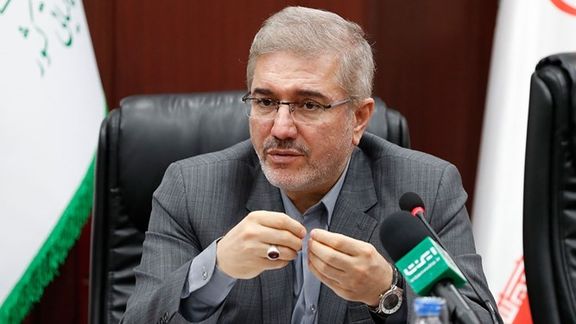
Iran's oil exports have surpassed the government's 1.4 million barrels per day target, the head of Iran's Plan and Budget Organization said on Sunday.
"Based on Iran's current budget, the government aims at exporting 1.4 million oil barrels per day, an objective which has now been surpassed thanks to the Oil Ministry's efforts," Davoud Manzour said.
The administration of Ebrahim Raisi based the budget of the current Iranian year (started March 22) on 1.4 million barrels of oil exports per day, however, the government expected to sell each barrel for $85. This would mean more than $43 billion in oil revenues from March 2023 to March 2024.
Iran’s heavy crude is worth about $80 on paper but the regime sells its oil clandestinely mostly to China with hefty discounts, to range from $40 to $50 a barrel, including payments to middlemen facilitating the illicit shipments.
Iran International reported in December that Tehran provides huge discounts to China, charging as little as $37 per barrel. A report by The Wall Street Journal in July said Iran is exporting the highest amount of crude oil in five years, but it offers discounts of up to $30 per barrel.
Prior to the re-imposition of US sanctions in 2018, Iranian oil exports were about 2.8 million barrels per day.
Iran's crude exports declined from 2 million to 200,000 barrels per day after the United States began imposing sanctions in 2018. Shipments began to increase in late 2020 when it became clear that President Joe Biden wanted to revive the JCPOA nuclear agreement with Iran abandoned by his predecessor. Critics have accused his administration of not enforcing the sanctions and allowing China to buy around one million barrels per day from Iran.
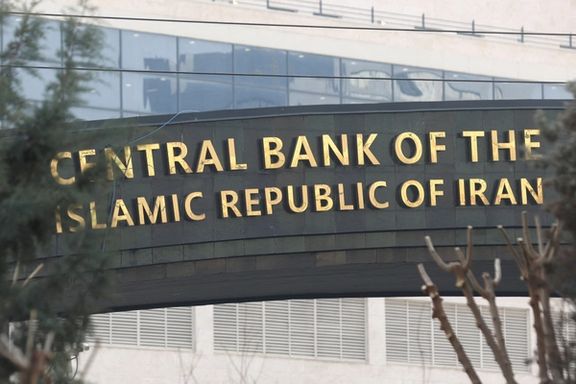
The unblocking of Tehran’s frozen funds after a hostage release deal with the United States has led to internal political debates and recriminations in Iran.
The former Central Bank governor has criticized the government’s claim of freeing $6b without a new nuclear deal or accession to the anti-money-laundering watchdog, FATF’s rules.
“Should we now rejoice for using our resources for food and medicine with America’s permission? Is this neutralization of [US] sanctions? Why don’t you say that we have been deprived of $6b in oil income every two months, a total of $72b, during [past] two years?” Abdolnaser Hemmati asked the government in a post Saturday on Twitter which has now been rebranded as X. He was referring to incessant opposition by hardliners to resolving differences with the United States in the past several years. The same hardliners now control Iran’s government.
They have continued to gloat about the government’s “achievement” and the Tehran Municipality-owned Hamshahri newspaper, which is now controlled by hardliners, has admitted that dual citizens were indeed taken hostage to force the United States to unfreeze Iran's frozen assets.
The reformist Ham-Mihan newspaper also argued the $6b that Iran will be able to use will not “undo any major knots in the country’s circumstances” because reducing the risk of foreign investment in Iran would have been a much more important factor in improving the country.
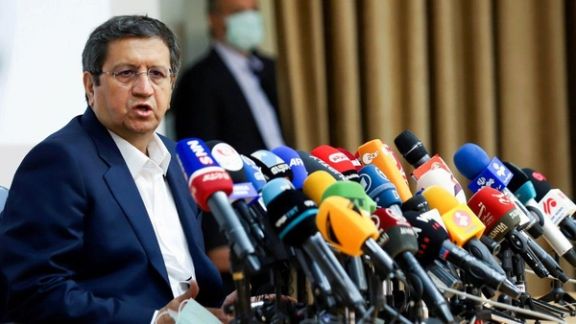
In a series of other posts Friday, Hemmati also argued that US sanction are still in place and any agreement with the US outside the framework of the 2015 nuclear deal, which has become obsolete in the past two years, does not change it. He also said the criticism against the government remains valid for dragging the process so much and returning to the starting point after two years of losses incurred by the country.
“Why did you circumvent Europe and resorted to [the mediation of] regional countries? More importantly, why you couldn’t implement the JCPOA or achieve a better deal to remove the sanctions despite claiming to be a mighty government?” he asked.
“Confirmed: One billion of the $7b [of frozen assets in South Korea is gone!” Mostafa Faghihi, the managing editor of the moderate conservative Entekhab news website said in an X post. “Can you see how the Iranian nation’s assets are being squandered as a result of the glorification of these gentlemen and theoreticians of ‘resistance against sanctions until the death of others’?”
Governor of the Central Bank of Iran, Mohammad Farzin, has admitted that the Iranian money held by South Korean banks has lost around $1b of its value in the past five years due to the devaluation of Won against the dollar during this period.
Faghihi, too, criticized the government for claiming that its foreign policy is “dignified” although they have agreed to have the approval of the United States for spending every cent of the unfrozen assets which should only be used for food and medicine.
Nizar Zakka, a Lebanese businessman who spent about four years in prison in Iran, however, told Iran International that his sources believe Iran will be receiving over $10 billion as part of the deal with the US to be spent exclusively for humanitarian purposes.
Iran’s funds are mostly kept in banks in South Korea ($7 billion), Iraq ($11 billion), Japan ($3 billion) as well as China and India where Iran is owed for shipments of crude and other oil products before 2018 when the United States pulled out of the JCPOA nuclear deal and re-imposed sanctions on Tehran.
In the past few years Iran has arrested several dual citizens on trumped up charges of spying for the US or European countries, in effect using them as hostages to extract concessions.
Security forces’ arrest of dual citizens, that is hostage-taking, was a display of Iran's great intelligence capability which “forces the enemy to unfreeze Iran's blocked assets,” a commentary published in a newspaper’s front-page Saturday claimed.
Zakka, who is the president of Hostage Aid Worldwide -- an NGO to support and help the release of people held hostage for unjust reasons – said his organization hopes that the prisoner swap deal will put an end to the “hostage business model” that the Islamic Republic has been conducting.
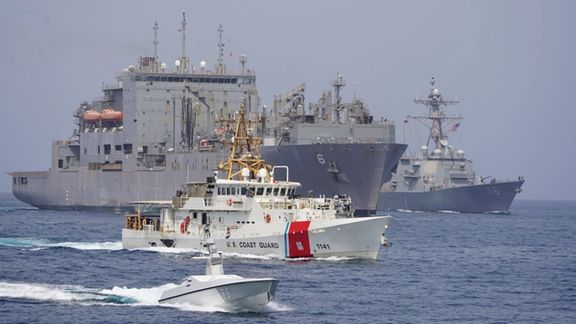
Days after a hostage deal freeing $6 billion in Iranian funds, the US Navy has warned ships in the Persian Gulf to stay away from Iran’s waters to avoid possible seizure.
The stark warning shows tensions remain high in and around the Strait of Hormuz, where Iran seized tankers in late April and early May, while Washington and Tehran are implementing a deal to free five US citizens held hostage in Iran and the US allowing $6 billion in Iranian funds held in South Korea to be unfrozen. The US Navy has warned in recent weeks that the Islamic Republic staged more than 15 attacks and seizures of vessels in the past two years.
"The International Maritime Security Construct is notifying regional mariners of appropriate precautions to minimize the risk of seizure based on current regional tensions, which we seek to de-escalate," Commander Timothy Hawkins, spokesman for the Bahrain-based US Fifth Fleet, said late on Saturday.
"Vessels are being advised to transit as far away from Iranian territorial waters as possible."
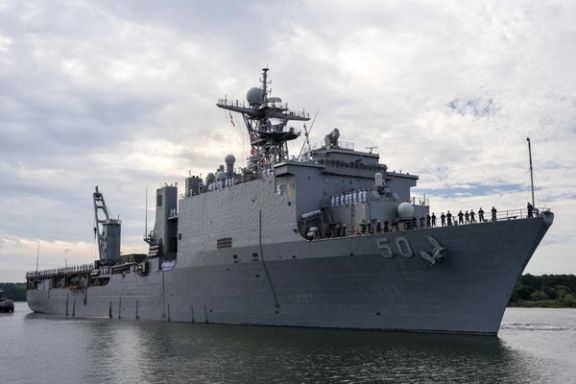
The warning also shows that Washington has little trust in Tehran’s intentions, even though they have secretly negotiated the latest deal. Some sources say that the agreement goes beyond freeing the hostages, and the United States will agree to the release of all Iranian funds frozen abroad, including in Iraq ($11 billion) and Japan ($3billion) in exchange for Tehran agreeing not to enrich uranium beyond 60-percent purity. Tehran is said to have already accumulated enough enriched uranium for producing at least two nuclear bombs.
The Biden administration has been beefing up US forces in the Persian Gulf region for weeks, deploying F-16 and F-35 warplanes, additional naval vessels, and Marines, as it has been working on the deal with Iran. The US on August 1 offered to provide armed troops to commercial vessels transiting the Strait of Hormuz, a narrow waterway where it is difficult to stay far away from Iran’s territorial waters.
Iran has also been putting up a show of force in recent weeks. The Islamic Revolutionary Guard (IRGC) held drills around three Iranian islands in the Persian Gulf contested by the United Arab Emirates, and claimed that it has added a 600-kilometer-range new missile to its arsenal “for defending the islands’ territory.”
Hossein Salami the commander of the IRGC delivered another speech on August 5, praising what he called unprecedented advances the Islamic Republic has made in naval power. In typical veiled language Salami said that “the enemy’s presence instead of posing a threat became an opportunity…and we expanded our defense and military” capabilities.
About a fifth of the world's crude oil and oil products pass through the Strait of Hormuz, a choke point between Iran and Oman at the mouth of the Persian Gulf.
If reports about a larger unwritten deal between Tehran and Washington, including issues other than hostages are true, it will come at an opportune moment for political leaders in both countries.
Some believe that President Joe Biden wants to reduce the likelihood of incidents and tensions with Tehran, especially a nuclear breakout before his re-election bid next year. Iranian hardliners who control the government, face serious economic and political challenges at home. Renewed mass protests and deteriorating economic conditions have left them with little choice but to negotiate for terms that would offer them some financial relief.
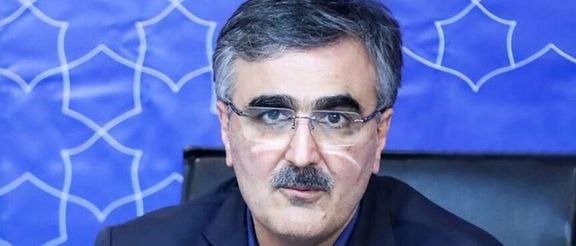
Iran's central bank chief said on Saturday that all of Iran's frozen funds in South Korea had been unblocked and would be used for "non-sanctioned goods".
Mohammad-Reza Farzin's post on social media appeared to confirm comments a day earlier by Washington, which said there would be restrictions on what Iran could do with any funds unfrozen under an emerging deal that has led to the release of five Americans from prison to house arrest in Tehran.
White House spokesperson John Kirby said Iran could only access the funds for basic necessities of humanitarian nature. An estimated $6 billion in Iranian assets have been held in South Korea.
"Essentially, the funds can only be accessed for food, medicine, medical equipment that would not have a dual military use," he said. "And there will be a rigorous process of due diligence and standards applied with input from the US Treasury Department."
However, It is not clear how the US will control the disbursements of the funds, which will be kept in six Iranian bank accounts in Qatar in euros, as any transfer of funds will be outside US control of dollar-denominated transactions.
Earlier, Iran's foreign ministry and government media insisted that the unfrozen funds would be under Tehran's direct and unrestricted control.
The five Americans will be allowed to leave Iran once the funds are unfrozen, a source familiar with the matter told Reuters.
"Congratulations to the foreign exchange diplomacy team for successfully releasing seized foreign currency resources," he said in the post on X.
He added that the costs of converting the funds from South Korea's won currency to euros would be accepted by the "third country" where the money would be deposited to buy "non-sanctioned goods".
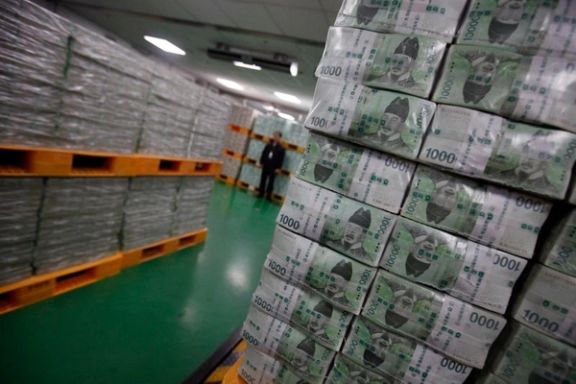
Some Iranian politicians and many citizens on social media have offered mixed reactions to the news about the release of Iran's frozen assets as part of a prisoner swap.
However, most Iranian social media users were explicit in stating that the Iranian American dual nationals are hostages, not individuals who were wrongly imprisoned, a euphemism that even some US sources and figures tend to use.
President Ebrahim Raisi’s Deputy Chief of Staff for Political Affairs, Mohammad Jamshidi wrote in a tweet on Thursday night: “After releasing Iran’s Frozen assets in Iraq, the release of all of Iran’s funds in South Korea has started. The prisoners the United States is interested in will remain in Iran until the money is fully transferred to Iran.”
Meanwhile in a tweet in English, Jamshidi wrote: “Hopefully, Iranians held hostage by the US will be freed. US prisoners in Iran will leave simultaneously with the irreversible release of our illegally held citizens and the full transfer of illegally held assets in South Korea, similar to the recently freed assets in Iraq.”
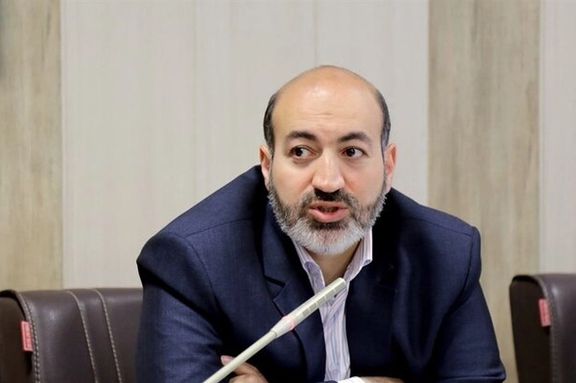
An Iranian commented on social media, “There is no money. This is a credit held by banks in Qatar for purchasing food and medicine,” and that "Well-connected individuals are getting ready to embezzle the money."
A former reformist lawmaker reacted to the news by tweeting "Can one ever be humiliated more than this? According to Iran’s laws, those prisoners are Iranian citizens, and their release has nothing to do with the United States. By the way, If they were spies, why they are being released, and if they were not spies, why they have been arrested?”
Conservative journalist Vahid Hajipour quoted Fars News Agency in a tweet as having reported that Iran’s frozen money in South Korea will go to Qatar and will be used to import goods that are not subject to US sanctions. Hajipour added: "This is exactly the same mechanism that was used for Iran’s frozen money in Iraq. What does this mean? It means that it is the United States that makes the decision about which goods can be bought by Iran’s money.” Using the Islamic Republic officials’ jargon about the deals between Iran and the United States, Hajipour added: “Welcome to watch Iran’s dignified diplomacy.”
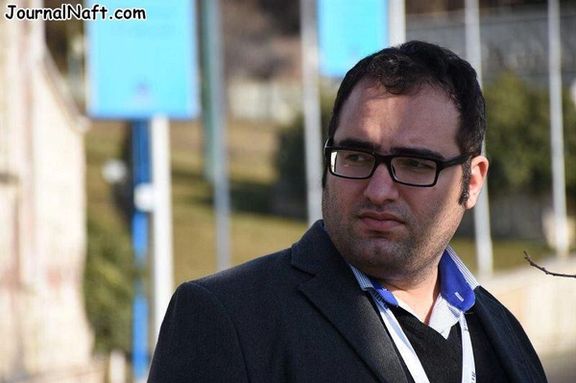
Meanwhile, a member of the Iranian nuclear negotiator team, Mohammad Marandi wrote on Twitter: "This is a dishonest claim manufactured by bitter people. Iran will have full and direct access to its released assets, there will be no Qatari companies involved, Iranian banks will have full control, and they can purchase goods and services without any limitation or restriction." Marandi was responding to US an Iran-watcher who had quoted Ali Vaez of the Iran Crisis Group as having said: " All Iran can do...is submit orders to a bank in Doha for food and medicine and a limited number of medical equipment...The bank in Doha would pay for the goods, and Qatari companies would deliver them to Iran. Iran has no direct access to the funds at all.'
In an optimistic analysis published by Etemad Online website political analyst Abdolreza Faraji Rad opined that the development is part of a wider unwritten agreement between Iran and the United States which is supposed to also cover other issues. Although Faraji wrote the piece in a way as if a nuclear deal is going to be within reach, the media in Europe and United States reported that any wider agreement is meant to also restrict Iran's regional military ambitions and prevent its proxy groups from attacking US bases in the region.
Meanwhile, Nour News, a media outlet close to Iran's Supreme Council of National Security also wrote that although negotiations between Tehran and Washington took a long time to lead to an agreement, "Now the situation is changing."